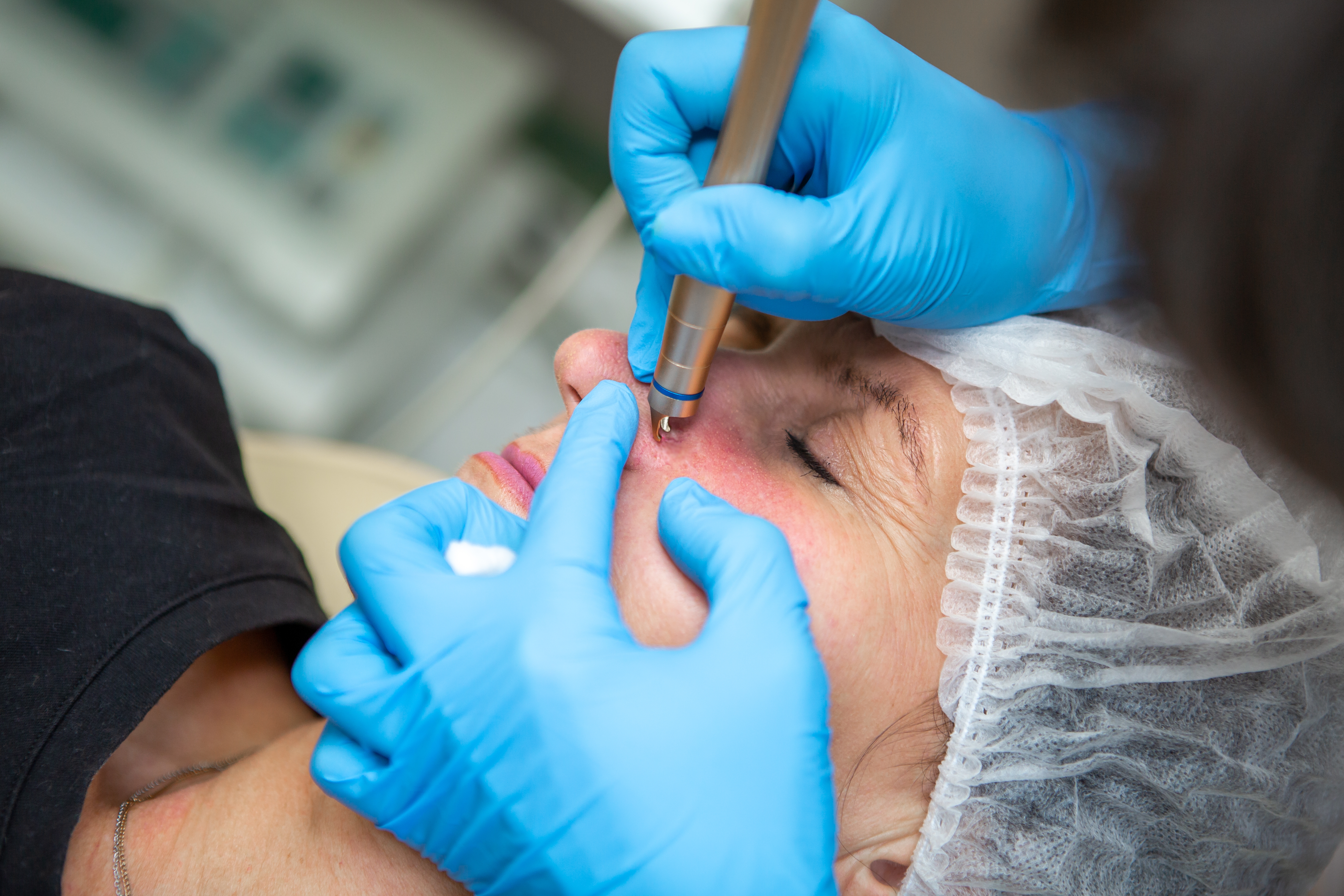Rosacea is a chronic skin condition characterized by facial redness with or without pimples on your cheeks, forehead, nose and chin.
The symptoms tend to come and go, usually set off by a trigger (more details below).

Who Gets Rosacea?
Rosacea tends to affect women more than men, but when men get it, it tends to be more severe. The average age of onset for rosacea is in someone’s thirties, forties, or fifties, but it can affect anyone at anytime. It is thought that more fair-skinned individuals are affected by rosacea, but the condition may be under diagnosed in dark-skinned patients because dark skin can mask facial redness.
Types of Rosacea
There are 4 types of rosacea (you can have one or more at the same time):
The exact cause of rosacea is unknown, but it could be due to an overactive immune system, heredity, and environmental factors. There are many factors that can trigger rosacea flares, including but not limited to:
A rosacea diagnosis is usually made by obtaining a good medical history and performing a good visual inspection by a dermatologist. Other skin conditions can mimic rosacea, such as acne, eczema,zseborrheic dermatitis, and lupus. Rarely are skin biopsies or other diagnostic tests needed to make a rosacea diagnosis, but to rule out other skin conditions that mimic rosacea, sometimes a skin biopsy is required.
People often ask what is the most effective treatment for rosacea? That can be different for everyone anddepends greatly on the subtype of rosacea the patient is diagnosed with. Certainly avoiding triggers helps, butgetting a prescribed skin care treatment plan is essential.
Danielle LeClair, NP will work with you to determine your triggers and to get you the treatment regimen that will work best for you. If you are ready to get your rosacea under control, give us a call at 410-870-8225 to schedule an appointment today.